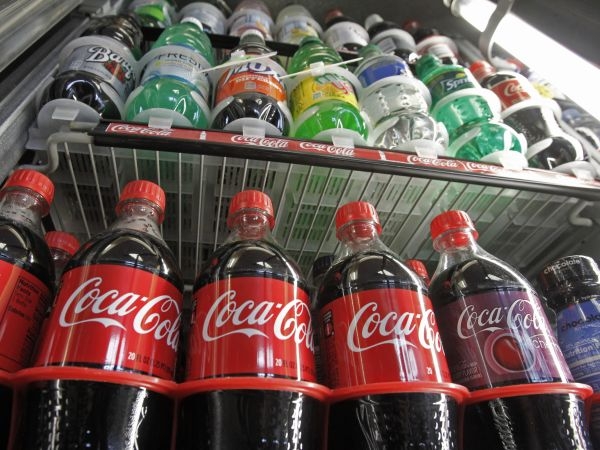
As lawmakers push a tax on sugar-sweetened beverages, Gov. Peter Shumlin has weighed in against the idea.
The governor said the tax is regressive and would not work to reduce sugar consumption.
The House Health Care Committee has approved the proposed tax on sugar-sweetened beverages as part of its overall health care budget bill. The Ways and Means Committee is also looking at the tax.
Proponents have two goals: They want to cut consumption of products blamed for an obesity epidemic. And they say the new tax could bring in much needed revenue for health promotion programs.
Tina Zuk is communications director of the Vermont chapter of the American Heart Association. She argued that the tax will change consumer behavior by imposing higher prices.
"And we see the tax as the solution in the same way that, as with tobacco, that if you significantly increase the price of the product it’s going to serve as a deterrent for populations who are especially price sensitive, like children," she said. "And we did see that with tobacco and the low income community.’
The sugar tax issue is the focus of fierce lobbying in the Statehouse. And Gov. Shumlin has sided with the beverage industry in opposition.
"Philosophically I don’t believe that you change human behavior when it comes to what we eat, what we consume, through tax policy. I just don’t believe that works," the governor said at his weekly news conference. "I think there’s better ways to do it. My real concern about the ‘sugar tax’ – quote, unquote – is that you’re going to ask lower income Vermonters – who are most adversely affected by consumption taxes – to pay more when they can’t afford it."
The governor is also worried that the tax would hurt grocery stores along the Connecticut River by driving consumers across the border to New Hampshire to shop.
"The evidence is in fact that since we’ve implemented the sales tax in this state, in the ‘60s when I was a kid, we’ve slowly watched retail business migrate from Vermont to New Hampshire," he said. "And I don’t want to give them any more love than we’ve already given them."
Supporters of the penny-an-ounce tax on sugar sweetened beverages say it could raise about $25 million dollars a year.
In a tight budget year, the sugar tax is turning out to be a very attractive revenue source for lawmakers.